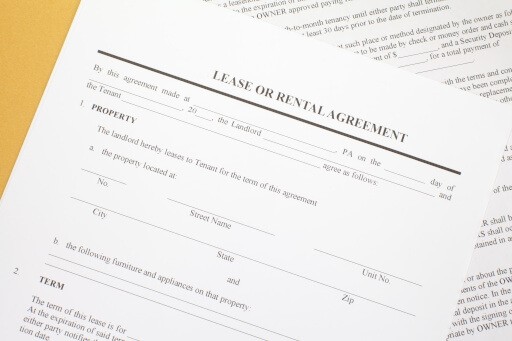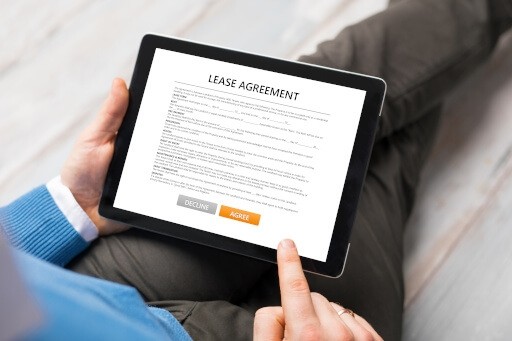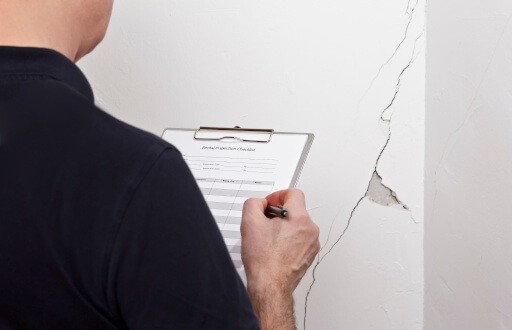It’s not a pleasant topic, but evictions are just a part of the rental business. You may have thoroughly screened all of your renters online before considering them to live in your rental. No matter how great their credit or rental history looks, you can still end up in a sticky situation. But what is an eviction, you ask? An eviction is the act of legally expelling a tenant from a property. This means that when you’re going through an eviction, you are attempting to remove a tenant from the rental property that you own and/or manage. Let’s discuss the legal eviction process to keep you well-informed on the legal end of things.
What Is the Legal Eviction Process?
To abide by the law, you need to follow this legal eviction process, but remember to check with your county for any local laws regarding the eviction process as well.
- First, terminate the lease with proper eviction notice. This is usually 30 days’ time, but it depends on the county’s laws.
- If the tenant doesn’t leave, you must file an action with the local eviction court.
- Attend the hearing and make your case for why the tenant should be removed from the rental property.
- Win the case.
- Make an appointment with local law enforcement to accompany you on eviction day.
- Show up on eviction day with law enforcement in tow, and reclaim possession of the property.
- Change the locks to keep the evicted tenant from returning to the property.
There are other methods that many landlords have attempted in order to remove a tenant from their property, including changing the locks or shutting off the tenant’s utilities without any prior legal action being taken. It may seem like a quick fix, but it’ll get you into a heap of trouble with local law enforcement if the tenant shares the news of your recent eviction methods. Always check with your state laws before making any rash decisions, and remember that you must send the tenant a proper, written eviction notice.
What are Legal Reasons to Evict a Tenant?
There must be a just cause for you to evict the tenant, especially if you are attempting to terminate a fixed-term lease before the lease is up. If you’re dealing with month-to-month agreements, you can typically notify the tenant 30 days prior to the date of eviction. There are many reasons tenants get evicted, but the most common grounds for eviction include:
Not paying rent
If the tenant is not paying rent (let alone late fees), then you have a just cause to terminate that tenant’s lease. There are not many exceptions in the court of law for not paying your rent. It’s not considered just in the eye of the law for a tenant to be able to continue living in the unit without paying rent, leaving the landlord high and dry. It’ll only be considered just if you as the landlord are not providing a rental property that’s livable. If you’re not keeping your property up-to-date, then the tenant may have a case for the court.
Expiration of lease
If you’re having a negative experience with a tenant, then here’s some good news! All leases come to an end. However, you may get a tenant who refuses to move out of your rental property. If this occurs, then you have a problem on your hands. If the lease has expired, then the tenant no longer has a right to be on the property. If they won’t leave, then you have a just cause to file an eviction with the court. This will likely be an easily-won case for the landlord or property manager, making it possible to legally evict the tenant from the premises.
Lease violation
If your tenant’s lease is not up, and they have violated the terms of their lease in some way (and the issue cannot be fixed in a reasonable time), then you have a just reason to evict the tenant through your local court system.
Lease violations include long-term house guests that are not on the lease or approved to live on the property, unauthorized pets (either they’re not allowed period or the tenant did not pay the required pet fee, deposit, or rent required to have a pet on the property), illegal use of the rental property (such as renting it out on a vacation rental site or running a business from the property), or an abundance of noise complains (if the tenant is having unreasonably loud parties or is unwilling to respect local quiet hours). Any of these lease violations are a just cause to evict your tenant.
Illegal activity
The type of illegal activity that warrants an eviction with the court depends on the state you live in, but in most places, any drug-related activity is just cause for evicting a tenant. Depending on where your rental property is located, you may even be able to terminate your tenant’s lease within a 24-hour period. The police and local government do not take illegal activity – especially drug offenses – lightly, so if you are having an issue like this with your tenant, do not hesitate to report it and get them legally evicted from your rental property.
Property damage
The last thing you want to deal with is a tenant damaging your property. You put time, money, and effort into owning and/or managing this rental unit. Whether the tenant does this unintentionally or they do not take care of your rental home throughout their lease, then you have the right to bring this tenant to court in hopes of evicting them from your property. Keep in mind that if your tenant is a hoarder, and claims this as a disability with the court (which is covered by FHA), then the property damage done in this scenario may not be grounds for eviction.
Any of the instances listed above are legal reasons to evict your tenant. Just be sure to do things the right way to avoid getting yourself, as the landlord or property manager, into any trouble with local law enforcement. As long as you follow the rules, you should be able to get the tenant off your property with no further harm done. Best of luck!











